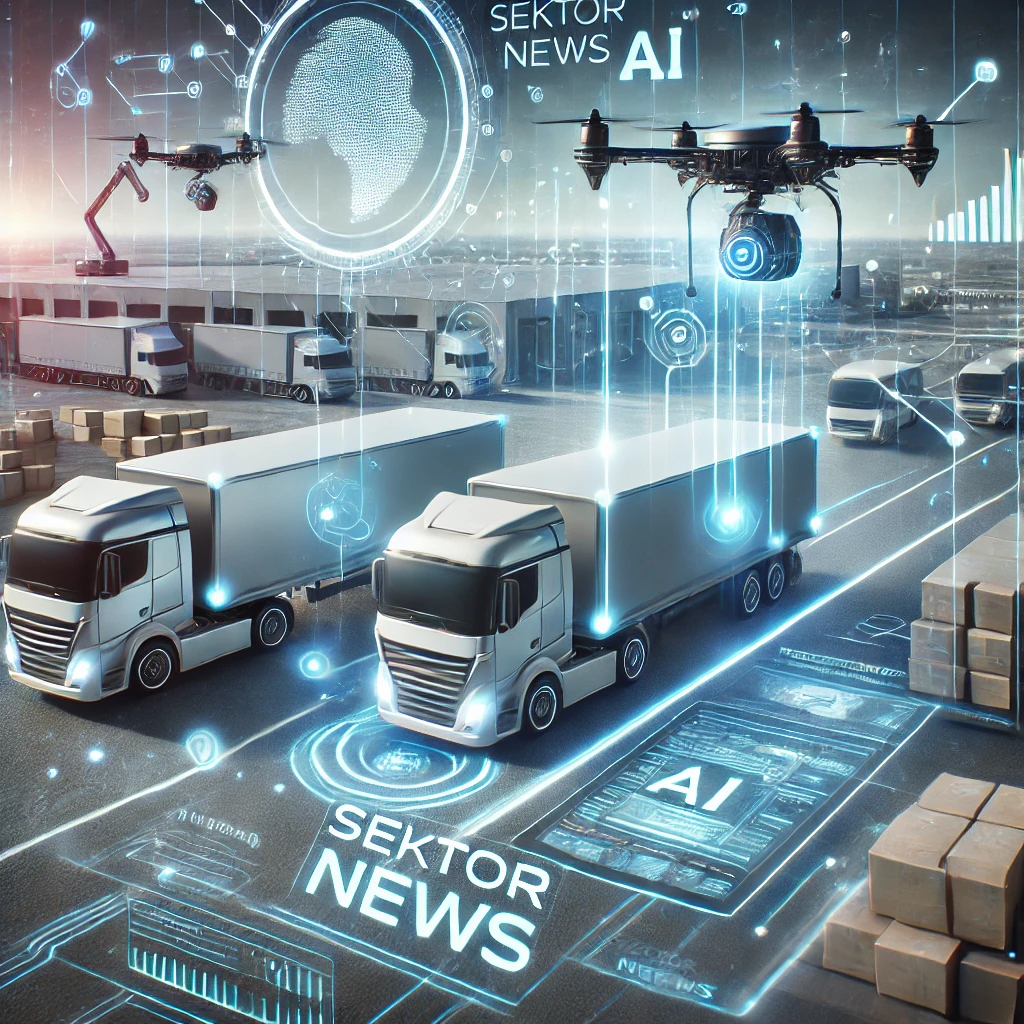How AI is Transforming the Global Logistics Industry, The logistics industry is undergoing a seismic shift, with artificial intelligence (AI) at the forefront of this transformation. From optimizing supply chains to enhancing last-mile delivery, AI-driven solutions are revolutionizing operations, reducing costs, and improving efficiency. As businesses strive to meet the growing demands of e-commerce and globalization, AI is proving to be a game-changer in overcoming traditional logistical challenges.
1. AI-Powered Supply Chain Optimization
One of the most significant impacts of AI in logistics is in supply chain management. AI-driven predictive analytics can analyze vast amounts of data, helping businesses anticipate demand fluctuations, manage inventory levels, and minimize waste. Machine learning models identify patterns in historical data, enabling more accurate demand forecasting and reducing stockouts or overstock situations.
Additionally, AI enhances dynamic pricing strategies by analyzing factors like transportation costs, demand shifts, and competitor pricing. This allows logistics providers to optimize their pricing models in real-time, leading to improved profitability and efficiency.
2. Smart Route Planning and Optimization
AI-powered route optimization is transforming transportation logistics by minimizing fuel consumption, reducing delivery times, and increasing overall efficiency. By leveraging real-time traffic data, weather conditions, and vehicle performance metrics, AI can identify the most efficient delivery routes.
For instance, AI-driven fleet management systems analyze GPS data and sensor inputs to adjust routes dynamically, ensuring on-time deliveries while cutting down on fuel expenses. Companies like UPS and Amazon already use AI for intelligent route planning, significantly lowering operational costs and improving delivery performance.
3. Autonomous Vehicles and Drone Deliveries
The rise of autonomous delivery systems, including self-driving trucks and AI-powered drones, is redefining last-mile logistics. Companies like Tesla, Waymo, and Embark are actively developing autonomous freight solutions, which promise to increase safety and efficiency in long-haul trucking.
Similarly, drone deliveries are gaining traction, particularly in urban areas where traffic congestion poses challenges. AI-enabled drones can navigate complex environments and deliver packages faster than traditional methods. Amazon’s Prime Air and Alphabet’s Wing are pioneering drone delivery systems to enhance e-commerce logistics.
4. Warehouse Automation with AI and Robotics
AI-powered robotic systems are revolutionizing warehouse operations, making them faster, smarter, and more efficient. Automated guided vehicles (AGVs) and robotic arms, powered by AI and machine learning, can sort, pick, and pack goods with minimal human intervention.
Companies like Amazon and Alibaba leverage AI-driven robotics in their fulfillment centers to enhance speed and accuracy. AI-powered computer vision systems also improve inventory management by scanning shelves, detecting stock levels, and predicting replenishment needs.
5. AI in Predictive Maintenance
Logistics companies rely on large fleets of vehicles and machinery, where unexpected breakdowns can lead to costly delays. AI-based predictive maintenance systems use IoT sensors to monitor vehicle performance and detect potential issues before they lead to failures.
For example, AI-driven diagnostics can analyze engine data, tire pressure, and fuel efficiency to predict when a truck requires servicing. This proactive maintenance approach reduces downtime, extends vehicle lifespan, and enhances overall fleet efficiency.
6. AI-Powered Customer Service and Chatbots
AI-driven chatbots and virtual assistants are transforming customer interactions in the logistics industry. These AI systems handle inquiries, provide real-time tracking updates, and assist with order processing. By leveraging natural language processing (NLP), chatbots offer seamless customer support, reducing the need for human intervention.
Logistics giants like FedEx and DHL use AI-powered conversational bots to enhance customer service, allowing businesses and consumers to track shipments, schedule deliveries, and resolve queries instantly.
7. Fraud Detection and Cybersecurity
As digital transactions and online logistics platforms grow, so do the risks of cyber threats and fraud. AI-driven cybersecurity solutions help detect anomalies, flag suspicious activities, and prevent fraudulent transactions in real-time.
Machine learning algorithms analyze patterns in financial transactions and detect unusual behaviors that could indicate fraud, enhancing security in supply chain payments and logistics operations.
The Future of AI in Global Logistics
AI is no longer a futuristic concept but a critical component in modernizing global logistics. With advancements in machine learning, robotics, and automation, AI-driven solutions will continue to shape the industry by enhancing efficiency, reducing costs, and improving customer experiences.
As logistics companies embrace AI, those that invest in cutting-edge technology will gain a competitive advantage in an increasingly dynamic and fast-paced market. https://lojistikfirmalari.sektornews.com






İlk yorum yapan siz olun